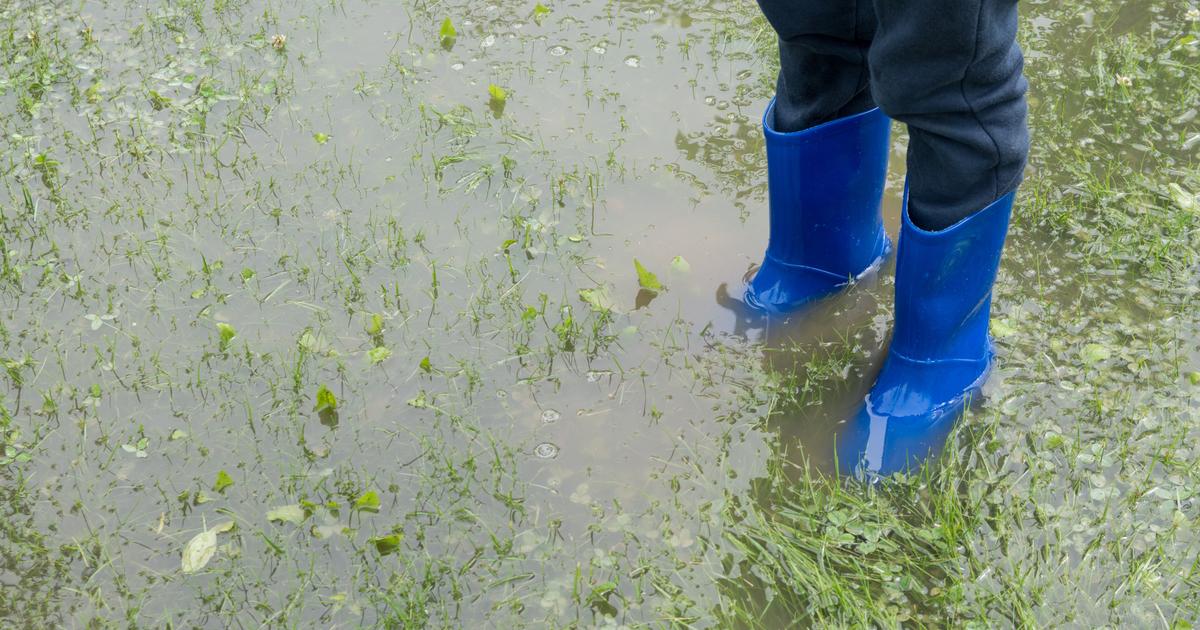When the water levels at a particular station in Venice rise over 1.10 meters above the zero mark, sirens sound in the city. For the Venetians, the alarm is routine - the lagoon city in Italy is regularly flooded. But in the night of Wednesday, the water levels approached a dramatically high value.
Just before midnight, the gauge reached the 1.87 meter mark. As high as since 1966 not, then the level rose up to 1.94 meters.
St. Mark's Square was under water during the night of Wednesday, gondolas were ripping off and drifting through the canals. The president of the Veneto region, Luca Zaia, spoke of "apocalyptic destruction". The emergency was declared. At least one person was killed.
Videos of the fire department show extent of the disaster
REUTERS
Why is Venice so often flooded?
Especially in autumn and winter, there are often flooding in Venice, known as "Acqua Alta". If low air pressure prevails during an exceptionally high tide, the Sahara wind Scirocco pushes the water into the canals of Venice. The current flooding also caused heavy rains.
Over the past few decades, the number of floods has roughly doubled. There are mutliple reasons for this:
- The city is gradually sinking . Venice is now about 25 centimeters lower than a hundred years ago. Above all, the extraction of groundwater had accelerated this process. That is forbidden since the end of the sixties. But according to a study from 2012, the city continues to decline - by about two millimeters per year. A possible explanation for this could be that the earth plate on which Venice lies slowly slides under the Eurasian plate.
- In addition, Venice has significantly expanded the harbor entrances and dredged the fairways to up to 18 meters. As a result, every year millions of cubic meters of sand from the lagoon are flushed into the sea, further destabilizing the subsurface.
- Climatologists assume that the floods will continue to increase due to climate change. Studies show that the sea level around Venice is rising much faster than the global average. Between 1993 and 2015, average levels grew by up to 6.6 millimeters per year.
If development continues, as the IPCC predicts, Venice could at least partially be flooded every other day in 80 years. According to another investigation, the water levels could rise to 2.5 meters.
Bulwark against the floods
The greatest hope of the UNESCO World Heritage City are 78 flood gates, which are to block off Venice at the three entrances to the lagoon off the Adriatic Sea. The individual goals are up to five meters thick, 20 meters wide and up to 30 meters high.
Usually they lie hidden on the seabed. At high tide, air is pumped into the steel boxes that straighten up. Actually, the so-called "Moses" project should already be finished. The opening, however, has continued to shift, also because of corruption scandals. Whether the six-billion-euro building will be finished as planned in 2022 is debatable.
Critics fear, however, that the barriers cause other problems. If the water level persists, the lagoon might have to be closed off from the Adriatic Sea for days. This could limit the oxygen in the lagoon's water and cause the ecosystem to collapse.
Some researchers therefore propose to raise the whole city, for example by means of liquid cement. The idea dates back to the seventies. At that time, a small island in the lagoon of Venice was successfully raised by ten centimeters.
"Venice will sink below sea level in the coming centuries," said Anders Levermann of the Potsdam Institute for Climate Impact Research (PIK) the SPIEGEL. The lagoon city was attacked from two sides: Due to the warming of the greenhouse gases air is increasingly coming to heavy rain. At the same time, rise the sea level. "To limit further warming," says Levermann, "we need to rapidly reduce carbon and oil emissions."





